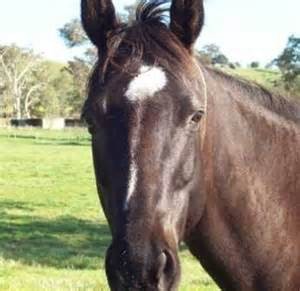Written by Dr. Kelly Hudspeth, DVM
Original Publish Date October 2013
Is there resistance to equine wormers? The answer is yes. This is not a new problem but one that continues to develop. The longer a wormer is used, the more likely resistance will develop. As a graduating veterinarian in 1992, I was so very lucky to start practice when ivermectin was relatively new on the market and the word was “ no resistance”. This continued to hold true for a number of years. However in 2013, ivermectin is not the silver bullet in equine horse wormers any longer. We do have to deal with an old problem of resistance to our wormers. The good news is old solutions are still very important. There are some tried and true methods that will help horse owners prevent or deal with wormer resistance.
- Use the correct dose. One sure way to develop a population of resistant worms is to under dose the medicine. This occurs for various reasons but the two most common are missing the correct weight of the horse or trying to save money by giving a smaller dose. By doing this all worms are not eliminated . The ones that survive reproduce to bless us with a more resistant population ready for the next insult. Bottom line is give the correct dose.
- Worm all horses at the same time. Concurrent dosing helps eliminate the worm burden on the pasture. If an owner spot worms by just worming the main horse being used or the one that “looks wormy”, the rest of the horse population provides a great pool of poop for reinfection! So to help clean the pasture, worm all horses at the same time.
- Pasture rotation can be helpful. Moving to a new pasture after all horses have been wormed is also very helpful in preventing reinfection. If using pasture rotation, grazing sheep or other species is also helping in eliminating the worm burden in the pasture. If pasture rotation is not possible because of limited resources, pasture cleanup is helpful.
- Pasture clean up. If your horse is being kept in a small area, literally removing feces is a good method to reduce reinfection not only after worming but throughout the year. The poop is the problem – it is the source of infection and allows the worm to complete the life cycle over and over. Remove the poop, remove the problem.
- Use a slow rotation of wormers. I believe a slow rotation leads to less resistance that the fast rotation. If you are worming every month, and using a different wormer each time, it may possibly be leading to a worm population that is resistant to a lot of wormers. Choose a wormer, follow with a fecal evaluation from your veterinarian, and stay with that wormer until it fails you. Most people would shutter if I said how long and how often I used an ivermectin based wormer on my horses without problems. By monitoring fecal counts and the overall appearance and wellbeing of your horse, you will know when that wormer is no longer working correctly and then it is time to rotate or change wormers.
Some conventional wormers that are available are listed below with the drug name listed first, followed by some brand names:
- Ivermectin – Zimecterin, Equvalan, Rotectin 1, Equimectrin, etc
- Moxidectin – Quest
- Fenbendazole – Panacur, Safegard
- Pyrantel Pamoate – Strongid T , Strongid P
- Oxibendazole – Anthelcide EQ
Following any wormer with a round of Probiotics will help reestablish normal flora.
From personal experience and dealing with my patients, there are times when everything fails. In that situation we still have options. I personally prefer going to some of the herbal remedies. I have had great success with the herbal wormer produced by Silver Lining (# 13 Worm Foe or Herbal Wormer). It contains Chaparrel, Juniper, Garlic, Sage, Cascara, Clove, Kelp, Slippery Elm, and Black Walnut. I have used this with cases that have positive fecals and also with poor doers that have negative fecals. In both situations, the overall wellbeing of the horse has improved. I use this on all my horses at least once a year. Herbal products seem to have less side effects and promote the overall health of the horse. There are many of these type products on the market, so I would advise consulting with a veterinarian before making your choice.
Parasites are a problem as old as the earth itself. But by using old methods for an old problem in today’s world, we can certainly control parasites and prevent them from having an adverse effect on our horses.





